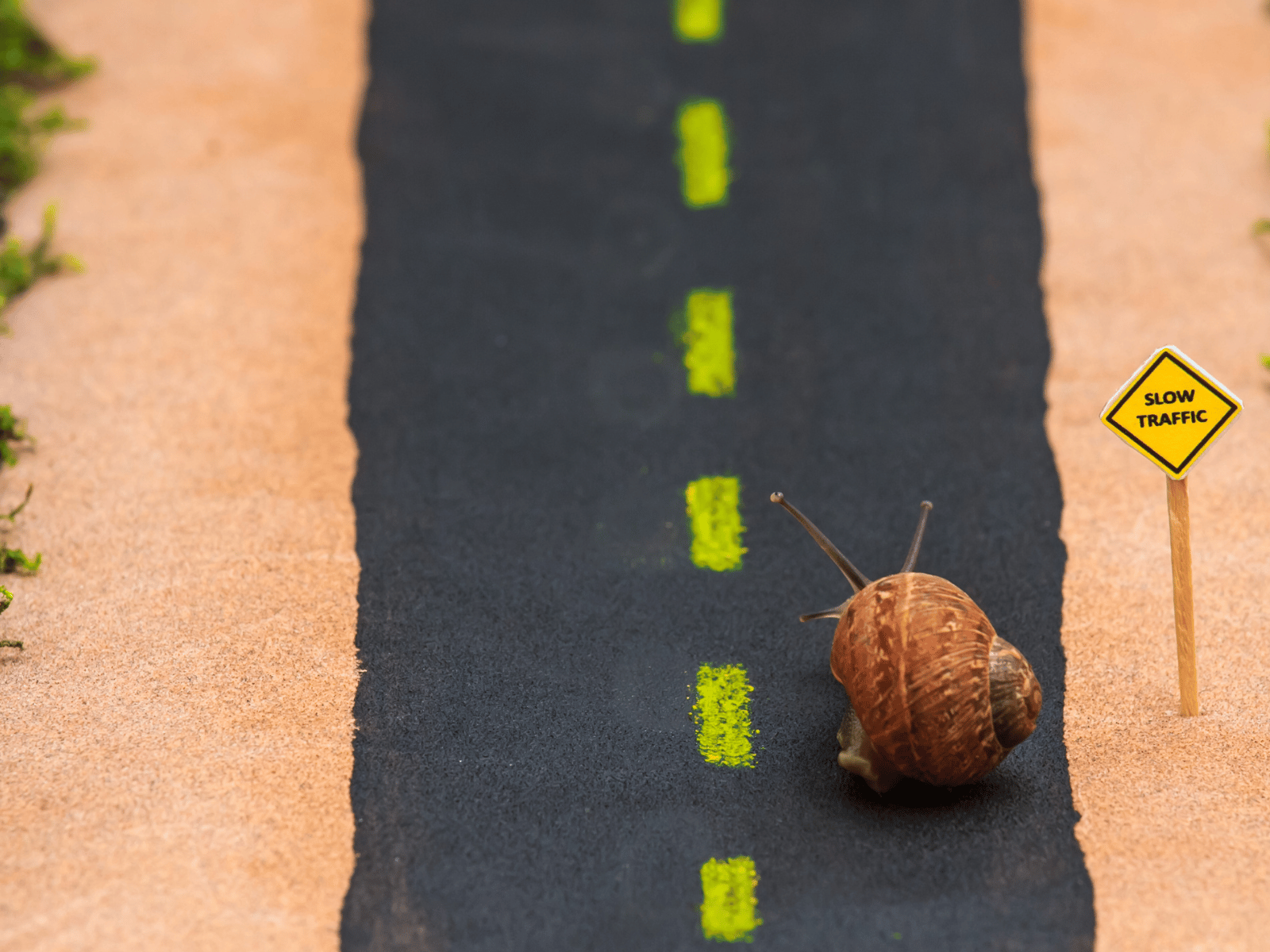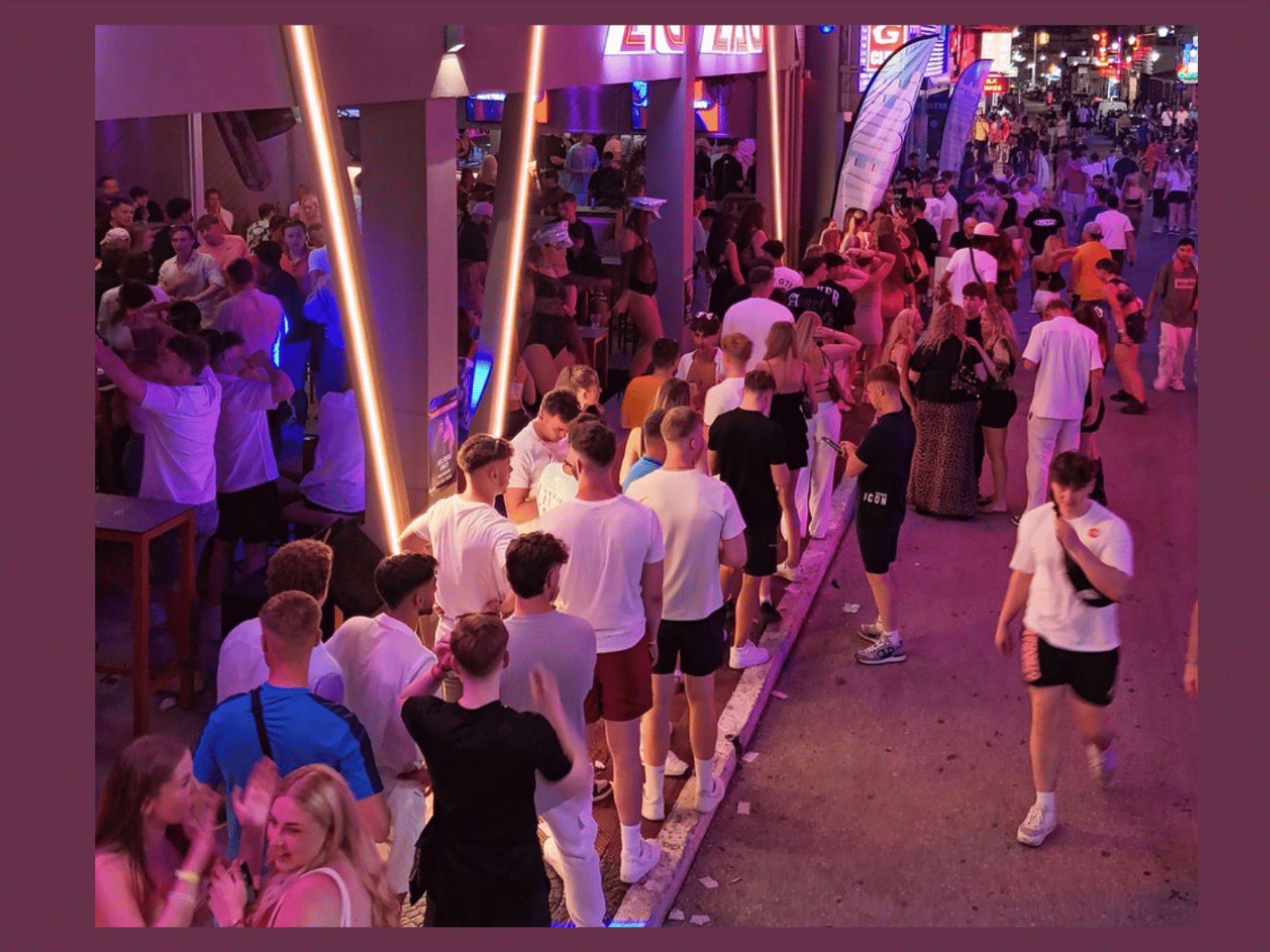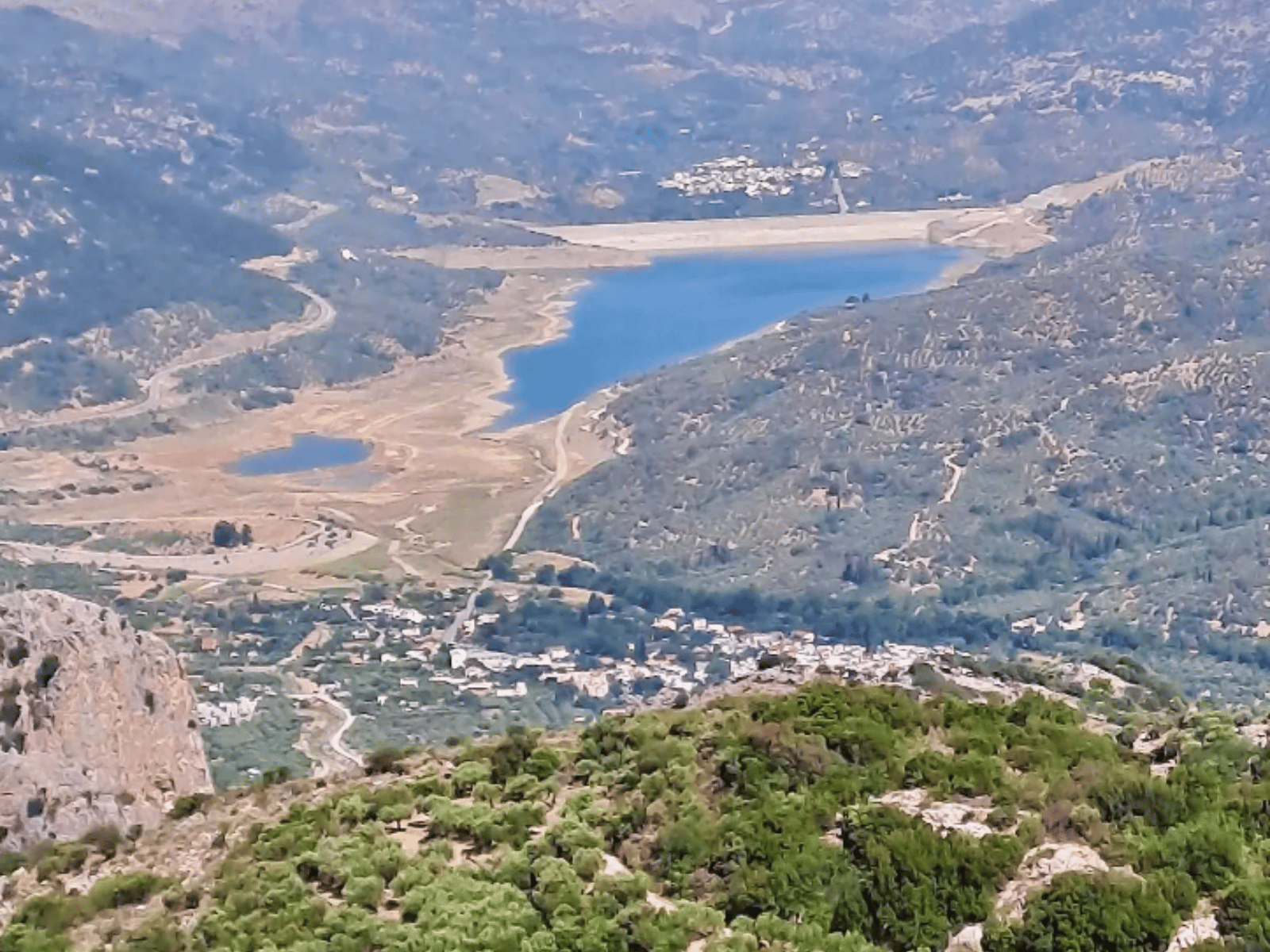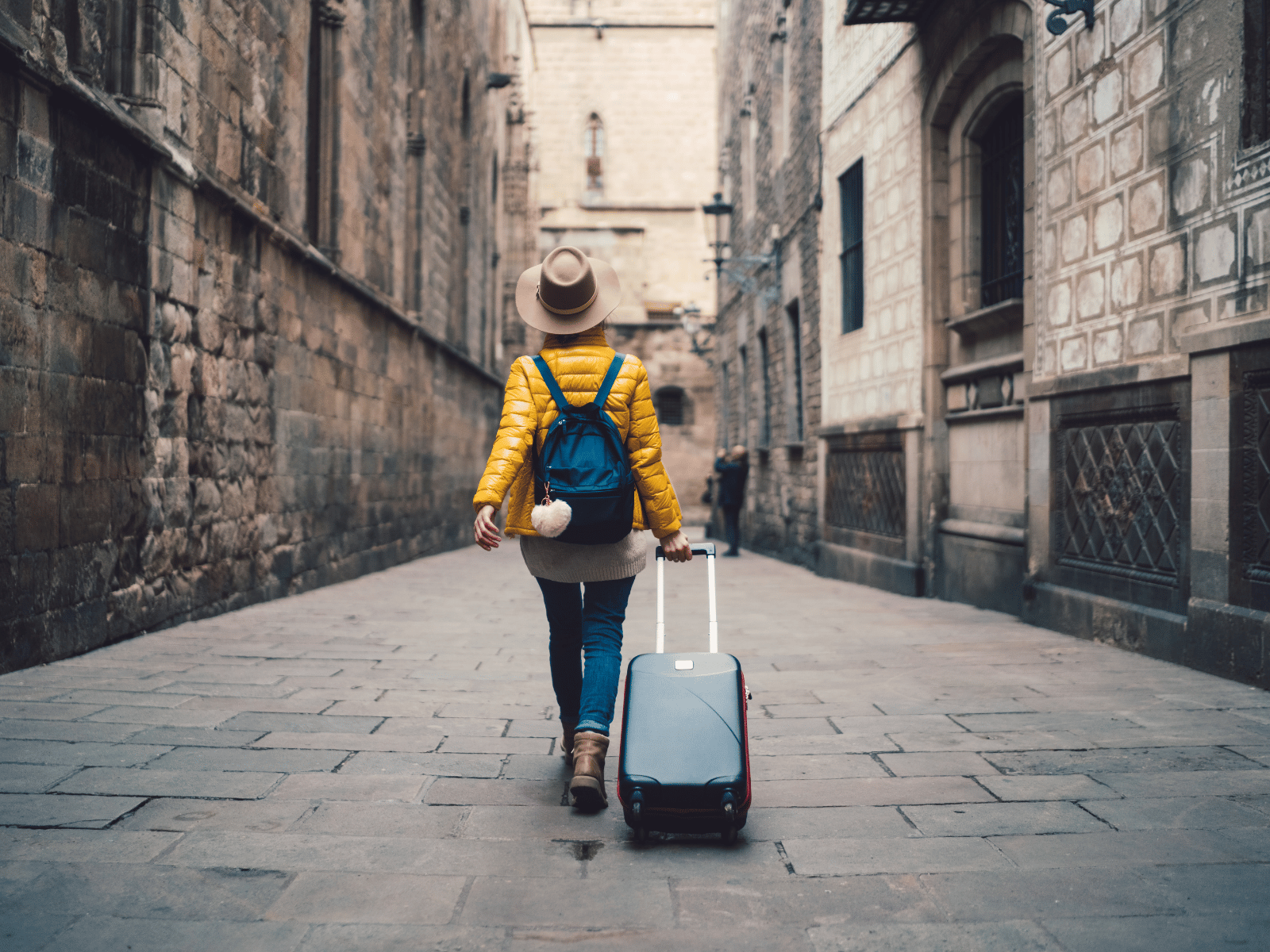Embracing Slow living & Slow tourism in a fast-paced world
Hello, all you mindful adventurers and purpose-driven entrepreneurs!
Do you remember our chat about 'unrushing' your SEO? The idea was to find that sweet spot where your digital presence genuinely reflects the depth and authenticity of your brand. Well, today, we're taking that philosophy a step further. We're diving deep into the essence of slowing down, connecting and truly living, and how this can be beautifully translated into the world of travel.
In an era where everything seems to be racing forward at high speed, where our planet is suffering from unsustainable practices and where the average person is battling myriad stress-related health issues, undoubtedly linked to chronic stress and mental strain, it's crucial to start a proper conversation. A conversation about sustainable solutions that can breathe fresh life into our communities and allow us to start dreaming again.
From my perspective, a great place to start this vital discussion is by talking about Slow living.
So, what exactly is Slow living?
At its core, the Slow living lifestyle is all about greater consciousness and intentionality. Rather than blindly following the herd, it's about aligning your actions with your deepest values.
It's about doing fewer things with far more purpose. It's about rediscovering the joy in simple, often overlooked moments and creating gentle, unhurried routines that foster peace, contentment and genuine satisfaction. Embracing Slow living naturally heightens your awareness, reduces your anxiety, and paves the way for a richer, more fulfilling life. You become truly present in your everyday experiences, savouring each one.
The concept of 'Slow' first gained traction in the 1980s with the Slow food movement, which was a rebellion against fast food and a call to appreciate local, traditional cuisine. However, by the 1990s and 2000s, the principles of Slow living had expanded far beyond the dinner table. They began to encompass various areas of life, including work, leisure, and relationships. This shift encouraged individuals to prioritise quality over quantity, mindfulness over distraction, and sustainability over short-lived convenience.
The movement has been profoundly influenced by a rich tapestry of philosophies and lifestyles:
Minimalism: focusing on decluttering our lives and simplifying our existence.
Mindfulness: emphasising present-moment awareness and intentionality in all we do.
Environmentalism: advocating for sustainable practices and a conscious reduction of our ecological footprint.
Slow living in the modern age
The Slow living movement continues to flourish, reflecting a collective desire for a more meaningful, sustainable and enjoyable way of life. It highlights the importance of taking a step back to appreciate the small moments and make choices that align with our values and well-being.
Today, Slow living is embraced through a variety of practices:
Conscious consumption: making thoughtful choices about sustainable, ethically produced goods.
Digital detox: reducing screen time and social media usage in order to reconnect with the real world.
Immersion in nature: spending more time outdoors to foster a deeper connection with nature.
Mindful routines: developing daily habits that genuinely promote well-being and satisfaction.
Community and online presence: the rise of social media and blogs has played a significant role in popularising the slow living philosophy by enabling individuals to share their experiences and connect with like-minded communities worldwide.
From Slow living to Slow tourism: a necessary evolution
Given that tourism and travel have always been, and will always be, a powerful force for human development, it is essential that we discuss Slow tourism.
Tourism has always played a significant role in shaping trends. Stressed-out city dwellers consistently turn to travel to escape the relentless pace and pressures of urban life. Coming from Greece, an undeniable tourism hotspot, and from a family deeply involved in mass tourism, I can assure you that, for decades, tourism was seen purely as another source of national income, not just in Greece but in many other Mediterranean countries too. In principle, I don't disagree with that. However, I strongly disagree with the philosophy underpinning that kind of tourism development.
The problem? The rapid and often reckless expansion of hotels, driven by inexperienced business owners who saw tourism development as a way to make money, has had a devastating impact. Alongside them, a flood of foreign tour operators who were essentially 'sheep-counting' to hit their annual turnover targets played a decisive role in creating an unsustainable tourism development model. Over-tourism and the violation of local residents' right to a good quality of life were the inevitable outcomes of yet another uninspired, short-sighted plan from those in charge.
Tragically, throughout this entire process, we lost sight of the philosophy behind the endeavour altogether. We forgot about local culture and the preservation of our precious resources and magnificent natural environment. But, most importantly of all, we forgot the immense power of tourism to foster awareness and understanding.
When you 'educate' people from Northern European countries — who, let's face it, are often the main tourism market — to come to your country just to eat and drink excessively, swim in Olympic-sized pools and not even know which country they're in or what its culture is all about, it's inevitable that you'll end up with what I call 'tourist cannibals'. These are visitors who exploit your resources, destroy your culture and impose their own habits, in terms of both food and lifestyle.
Take the northern coast of Crete, for example, where I experienced mass tourism first-hand. English breakfasts are paraded front and centre on restaurant menus, alongside pre-fried chips and ketchup. And this is in Crete, a gastronomic paradise renowned for its incredible produce and divine soil, which promote health and longevity! In my 11 years of experiencing tourism in Crete, I didn't see a single tourist interested in this local bounty, nor many business owners genuinely promoting the local culture. Even those who have jumped on the 'sustainability' bandwagon in recent years often do so more to use the buzzword — because it's a powerful marketing tool — than because they truly mean it. How can you claim to be sustainable? Is it because your restaurant uses Cretan oregano on farmed sea bass and sea bream? Or because you named it after an ancient Greek god? Come on!
And let's not even start on the absurdity of offering holidays in hotels with three swimming pools and private pools for each bungalow when the olive trees of Crete withered by 30% in 2025 due to water scarcity, resulting in losses of over 1 billion.
I'm afraid that's simply not sustainable.
Aposelemi Dam , June 2024 Crete
Nature cries out loudly
The beginning of hope: embracing Slow tourism.
Thankfully, there are shining examples of entrepreneurs who are choosing to play a different role in the future of tourism. They are consciously embracing Slow Tourism. Check this to find awesome places to discover Greece Slowly.
In my humble opinion, it's utopian to try to convince Northern Europeans to stay put and travel less. If you were in Berlin today, for example, it would be the tenth consecutive day of rain and clouds in the middle of summer. The sheer boredom this induces makes escaping to a sunny destination essential to avoid depression! However, it is time to educate these travellers about a new way of experiencing tourism.
Here's how tourism professionals can champion Slow tourism:
Educate people about local delicacies: focus on the produce your region grows and your traditional recipes. Don't serve Atlantic swordfish and Norwegian salmon by the Mediterranean sea. Instead, make a conscious shift towards Mediterranean cuisine and the pulses and vegetables grown locally. Resist the urge for easy profit. Replace ketchup with parsley pesto made with walnuts and local cheese. Show the average Northern European what it truly means to eat well.
Foster authentic cultural immersion: it's not just about serving local food; it's about inviting your guests to experience a new culture and making them feel like genuine members of it. Talk to them, ask about their customs and be open to sharing your experiences and getting to know each other. Avoid impersonal, generic tourist clichés in your offerings. Simple example: Stop adding unnecessary plastic decorations to your cocktails. Instead, welcome young, innovative mixologists who can take a locally produced drink to the next level. Embrace the trends and make them work for you and the broader Slow Tourism philosophy, rather than simply being a victim of them.
Embrace energy evolution: Invest in solar energy to reduce your business's energy footprint. Educate your guests about conserving resources, especially water. Explain how vital it is for your country to preserve its water resources for the benefit of its inhabitants. Make that part of your story, the vision of your business.
Say NO to resource-wasting luxuries: don't provide "luxuries" that waste our precious resources, such as water. Private pools overlooking the azure waters of the Mediterranean? Honestly, they should be banned. I'm not kidding. In my opinion, this so-called 'luxury' habit needs to end.
Put people first: position people at the heart of your business, whether they are customers or employees. Sacrificing people on the altar of customer service is, quite frankly, unsustainable. Close your establishments in extremely hot hours and let your staff rest. A few extra euros won't make a difference in the long run, but focusing on the value of human life can bring about profound change.
And here's how travellers can embrace Slow tourism:
You have power! Use it!
Choose more off-the-beaten-track destinations: opt for islands or areas that are not characterised by overtourism. This gives smaller businesses a chance to flourish. In the current climate, the gap between the wealthy and the less fortunate has widened to alarming levels, reminiscent of a time no one wants to remember. Since politics seems incapable of finding solutions today (or not even searching for them), YOU can provide them. There are so many of us on this planet that our collective choices can bring about significant socio-political change. You have power! Use it!
Prioritise cultural immersion: instead of spending eight hours sunbathing, make it a priority during your holidays to truly get to know the local culture of the place you're visiting. Open your mind to new culinary and cross-cultural experiences. Meet the locals, eat their food and thank them for sharing it with you. For just one week, please leave your home country's habits behind. Trust me, it'll do you good!
Be an eco-conscious traveller: if you care about the environment at home, continue to care about it on holiday. Keep recycling, avoid renting motorbikes and other vehicles that cause noise pollution, and choose businesses that actively demonstrate their commitment to the environment. Play your part as a responsible tourist and spend your money with those doing valuable work. If we all do this, the irresponsible businesses will gradually disappear.
Make conscious choices, even when flying: even when travelling by plane, you can make similar choices. For example, despite these challenging times, Aegean Airlines continues to offer its travellers breakfast or lunch during the flight. Their menu always features traditional Greek recipes, promoting Greek culture and gastronomy and offering a warm welcome to Greece. Why give your money to companies that treat you like number and have staff who resemble bad copies of market vendors when you can spend a few extra euros with a company that treats you well? You might say, 'I don't have the money.' You know what? If things continue as they are, soon you won't have enough money to cover your basic expenses. If you don't take action to change the situation, things will only get worse. It's better to go on holiday fewer times and teach this spoiled system a lesson than to go on one more holiday and reinforce it.
There are plenty more points to be made, both for business owners and travellers, and we’ll probably revisit this topic on this blog. But the essential point for me is that we start talking about Slow tourism. Beyond the characteristics we've discussed so far, Slow tourism and Slow living are about relearning how to live as human beings, restarting a new reality. If you truly want to see change, you've come to the right place. Let me know what you think in the comments below.
Let's finally chat about it!






